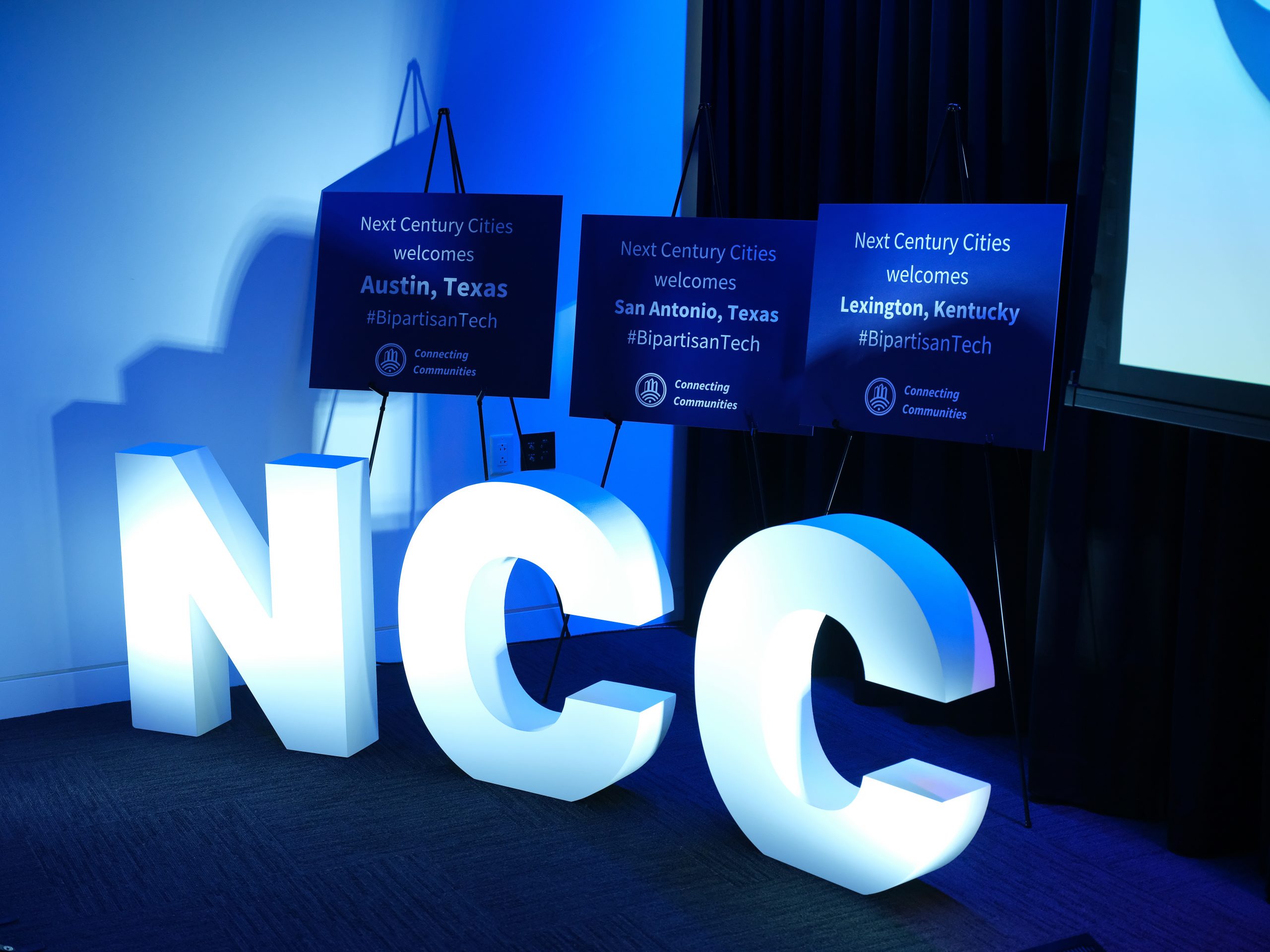By Brian Donoghue

In recent years, municipalities across the country have faced growing challenges related to climate change and the need for improved digital connectivity. Perhaps now more than ever, policymakers recognize that the intersection of broadband and climate policy is critical for addressing these challenges. In this reflection, I explore three key intersections of broadband and climate policy and discuss how they shape the United States’ response to pressing environmental and connectivity issues.
Expanding Broadband Access to Reduce Greenhouse Gas Emissions
Broadband access is essential for promoting clean energy solutions, reducing greenhouse gas emissions, and fostering a more sustainable future. As the world becomes more connected, the demand for data and energy-intensive digital services grows, contributing to global emissions. However, broadband infrastructure can contribute to climate change mitigation when deployed effectively.
Expanding broadband access enables remote work, online learning, and telemedicine, among other things. The online availability of these services and activities can decrease the need for travel and its associated greenhouse gas emissions. Furthermore, broadband networks support smart grid technologies that allow for more efficient management of energy resources and greater integration of renewable energy sources. By investing in broadband infrastructure, policymakers can help pave the way for a low-carbon future.
Strengthening Climate Resilience through Broadband Infrastructure
The effects of climate change have been evident in the United States, with more frequent and severe weather events leading to high economic and social costs. Broadband connectivity is crucial for enhancing climate resilience, as it enables the rapid dissemination of information and the coordination of response efforts during natural disasters.
To ensure communities can access reliable communication networks in the face of climate change-induced disruptions, policymakers must prioritize investments in broadband infrastructure. This includes funding for fiber-optic networks, satellite-based connectivity, and other emerging technologies resilient to extreme weather conditions. By improving connectivity, decision-makers can enhance the country’s preparedness for climate change impacts and support a more adaptive society.
Digital Inclusion and Environmental Justice
The digital divide is not only an issue of connectivity but also has environmental implications.
Low-income and marginalized communities bear the brunt of the impacts of climate change, such as flooding, heat waves, and air pollution. These communities are also more likely to have trouble accessing high-speed broadband, limiting their ability to take advantage of resources, information, and services that could help them mitigate and adapt to climate change.
Addressing digital divides is essential to achieving environmental justice. Policymakers must focus on expanding broadband access and digital literacy in underserved communities, ensuring everyone can access the tools and resources needed to respond to climate change. By bridging the digital divide, decision-makers can promote a more equitable and inclusive response to the climate crisis.
As the United States continues to confront the challenges of climate change and the digital divide, policymakers need to recognize the intersections between broadband policy and climate policy. Many municipalities have taken steps to fight climate change, developing strong partnerships with state and federal agencies. Philanthropic initiatives can help catalyze this work in communities, including the American Cities Climate Challenge, which provided resources to 25 U.S. mayors, including 11 NCC members, as they work toward combating climate change in their cities.
By expanding broadband access, enhancing climate resilience through improved infrastructure, and promoting digital inclusion for environmental justice, decision-makers can support a sustainable and connected future for all.
Additional Resources:

